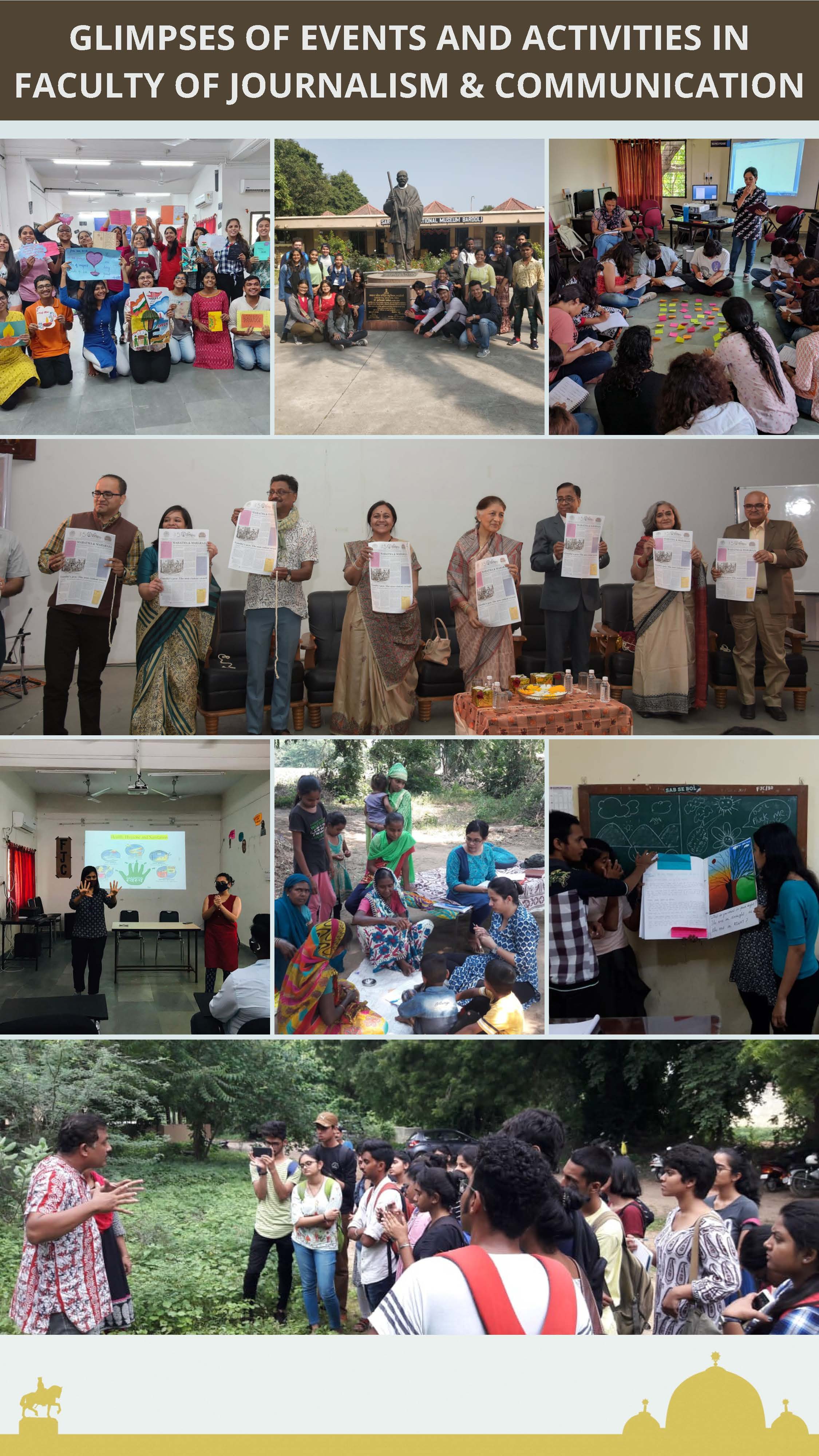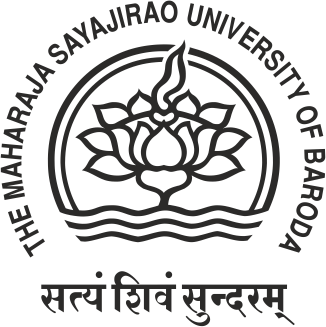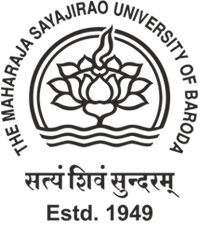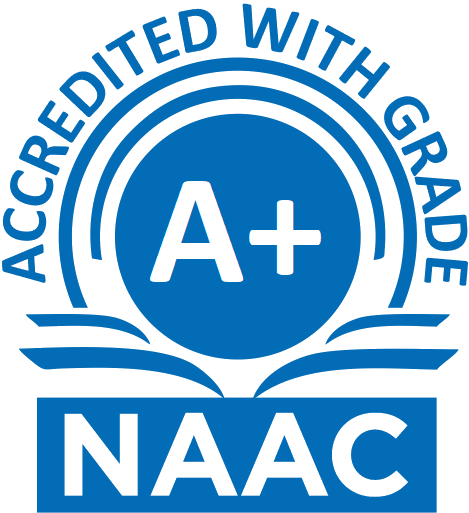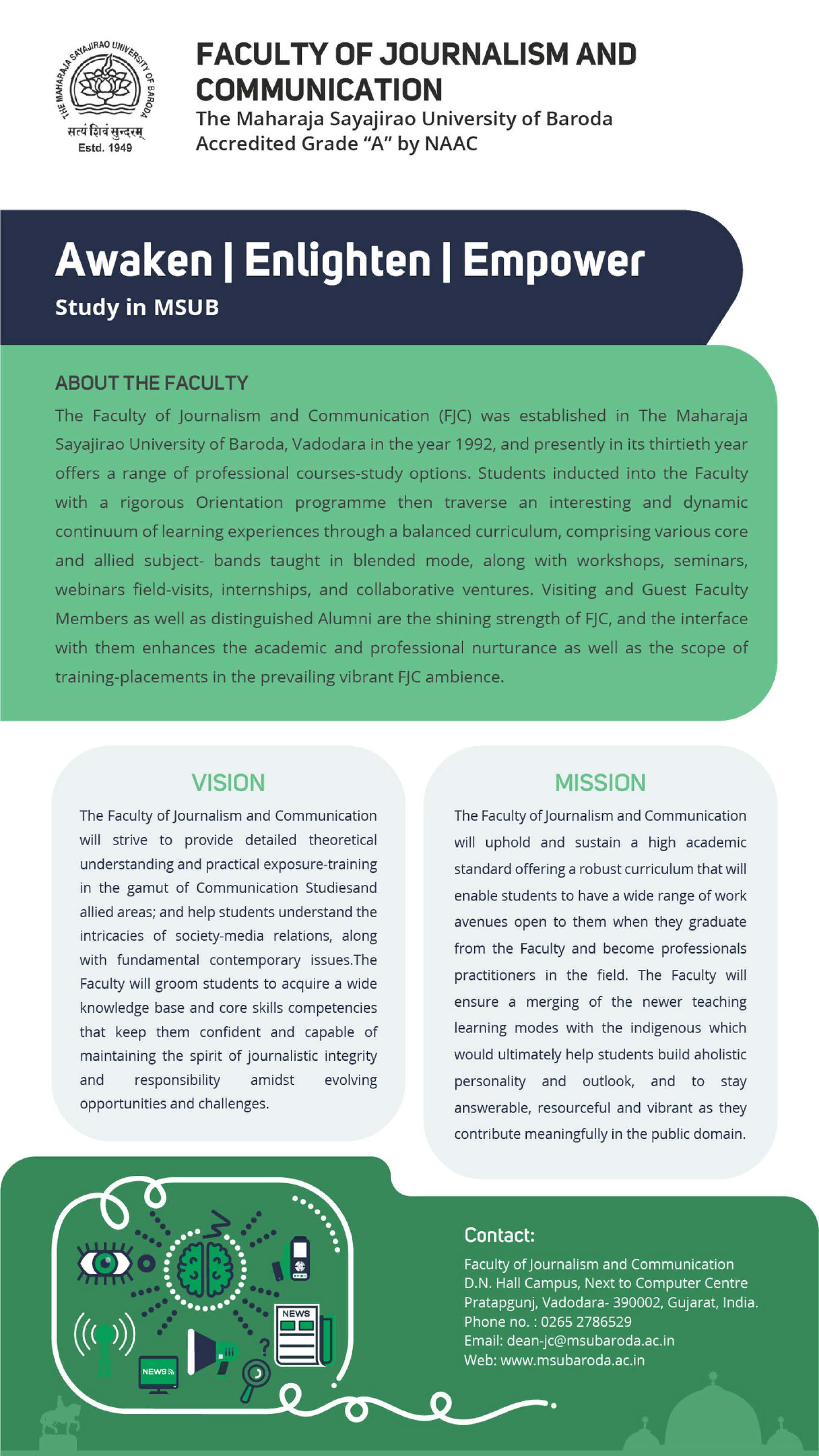
The Faculty of Journalism and Communication (FJC) was established in The Maharaja Sayajirao University of Baroda (MSUB), Vadodara in the year 1992 offering a one year Post Graduate Bachelors programme (BJC), which was five years later replaced with its flagship Masters programme (MCS, later renamed MJMC) in 1997. The Doctoral programme has been initiated since 2016, and a regular Bachelors programme of six semesters (BJMC) is offered since 2017. Recently, a course in Public Policy Communication, and Faculty level short Certificate courses in Effective Communication Skills, and Fundamentals of Film Appreciation have also been instated into the range of study options available.
Students inducted into the Faculty with a rigorous Orientation programme then traverse an interesting and dynamic continuum of learning experiences through a balanced curriculum, comprising various subject- bands taught in blended mode, along with workshops, seminars, webinars, field-visits, internships, and collaborative ventures. Visiting and Guest Faculty Members as well as distinguished Alumni are the shining strength of FJC, and the interface with them enhances the academic and professional nurturance as well as the scope of training-placements in the prevailing vibrant FJC ambience.
The Faculty is driven by a vision to provide detailed theoretical understanding and practical exposure-training in the gamut of Communication Studies and allied areas; and help students understand the intricacies of society-media relations, along with fundamental contemporary issues. The Faculty aims to groom students to acquire a wide knowledge base and core skills competencies that would keep them confident and capable of maintaining the spirit of journalistic integrity and responsibility amidst evolving opportunities and challenges.
A single Department of Journalism and Communication under the Faculty of Journalism and Communication is on a mission to uphold and sustain a high academic standard offering a robust curriculum that will enable students to have a wide range of work avenues open to them when they graduate from the Faculty and become professionals-practitioners in the field. The Faculty ensures a merging of the newer teaching learning modes with the indigenous which would ultimately help students build a holistic personality and outlook, and to stay answerable, resourceful and vibrant as they contribute meaningfully in the public domain.
Having undertaken and completed projects, both remunerative as well as academic- experiential in nature, and keeping an emphasis on communication research tenets and innovative assignments’ modes, the student-teacher engagement in the Faculty is highly dynamic and meaningful—enhancing an interesting flow of work and industry-interface. The curriculum being interdisciplinary, contemporary, and comprehensive is an inherent strength of FJC, and thus overseas students, Army officers, and several regular students aspire to broaden-sharpen their knowledge and skills base, and build-sustain their careers in the media industry after studying in the Faculty of Journalism and Communication, MSUB.
